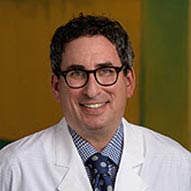Pediatric Apert Syndrome
Apert syndrome is a genetic disorder that causes abnormal head and face growth, as well as fused fingers and toes. About one in 100,000 babies are born with Apert syndrome.
What is Pediatric Apert Syndrome?
Apert syndrome is a genetic disorder in which certain skull bones fuse together prematurely, which is known as craniosynostosis. This early fusion of the skull prevents it from developing normally, and causes the child to have an unusual head and face shape.
What are the signs and symptoms of Pediatric Apert Syndrome?
- Bicoronal craniosynostosis
- A very large soft spot in the front of the skull
- Bulging and wide-set eyes
- Downward tilt to the eyelids
- A short nose
- A sunken appearance in the middle of the face
- An undeveloped upper jaw, causing dental problems
- Complex Syndactyly (Webbed hands)
Usually both coronal sutures are closed and these patients have turricephaly which means tower skull. Their head shape is more abnormal than Crouzon patients. Apert patients have a very flat back of the head, and the middle and front part of the skull are wide and have the appearance of tilting forward.
The middle part of the face is vertically short and flat from an underdeveloped upper jaw. The palate is either high arched or a cleft palate is present. The alignment of the upper and lower teeth is very abnormal. The middle part of the face is displaced so far backward that these patients may not be able to breathe normally and sometimes require a tracheotomy. Children with Apert syndrome can have various degrees of learning problems and developmental delays. About 70% have a reduced IQ but some have normal intelligence.
Patients with Apert syndrome have varying degrees of webbed or fused fingers and toes (Syndactyly). Usually, at least three fingers on each hand and three toes are fused together. In the most severe cases, the skin, nails and bones of all the fingers and toes are fused.
Patients with Apert syndrome are at a high risk for hydrocephalus. This is a build up of the cerebrospinal fluid (CSF) that the brain is surrounded by. This can cause very high pressure in the skull that requires drainage or the CSF using a shunt to protect the health of the brain. These patients are also at risk for developing Chiari malformation, however their risk is lower than that of patients with Crouzon or Pfeiffer syndromes. A Chiari malformation affects the back part of the brain (cerebellum), which is important for balance and coordination. It is present when part of the cerebellum pushes into the opening in the base of the skull where the spinal cord meets the brain (foramen magnum). This can cause a back-up of CSF and increase the blood pressure in the veins draining blood from the brain. Both of these can create high pressure that can harm the brain.
Additional signs and symptoms of Apert syndrome can include:
- Hearing loss
- Heavy sweating (hyperhidrosis)
- Severe acne
- Fusion of spinal bones in the neck (cervical vertebrae).
- Frequent ear infections that may be associated with an opening in the roof of the mouth (a cleft palate)
Apert syndrome is genetic. Mutations in the FGFR2 gene cause Apert syndrome. This gene produces a protein called fibroblast growth factor receptor 2. Apert syndrome can be inherited in an autosomal dominant pattern, which means one copy of the altered gene in each cell is all that is needed to cause the disorder. However, new mutations in the gene usually cause most cases of Apert syndrome, and happen in babies with no family history of the disorder.
Without surgery, about 85% of these patients will develop elevated pressure inside the skull which is harmful to the brain’s health. These patients typically need 2-3 surgeries on skull to achieve a normal head shape and to treat or prevent the increased pressure. They typically require an operation to move the middle portion of the face forward (LeFort III advancement) using distraction osteogenesis between ages 5-8 years old. Usually, they will need a surgery when fully grown to line up the upper and lower jaws.
Pediatric Apert Syndrome Doctors and Providers
-
 Alex Kane, MD Plastic and Craniofacial Surgeon
Alex Kane, MD Plastic and Craniofacial Surgeon -
 Brad Edward Weprin, MD Division Director, Neurosurgery
Brad Edward Weprin, MD Division Director, Neurosurgery -
 James Seaward, MD Plastic and Craniofacial Surgeon
James Seaward, MD Plastic and Craniofacial Surgeon -
 Dale Swift, MD Pediatric Neurosurgeon
Dale Swift, MD Pediatric Neurosurgeon -
 Angela Price, MD Pediatric Neurosurgeon
Angela Price, MD Pediatric Neurosurgeon